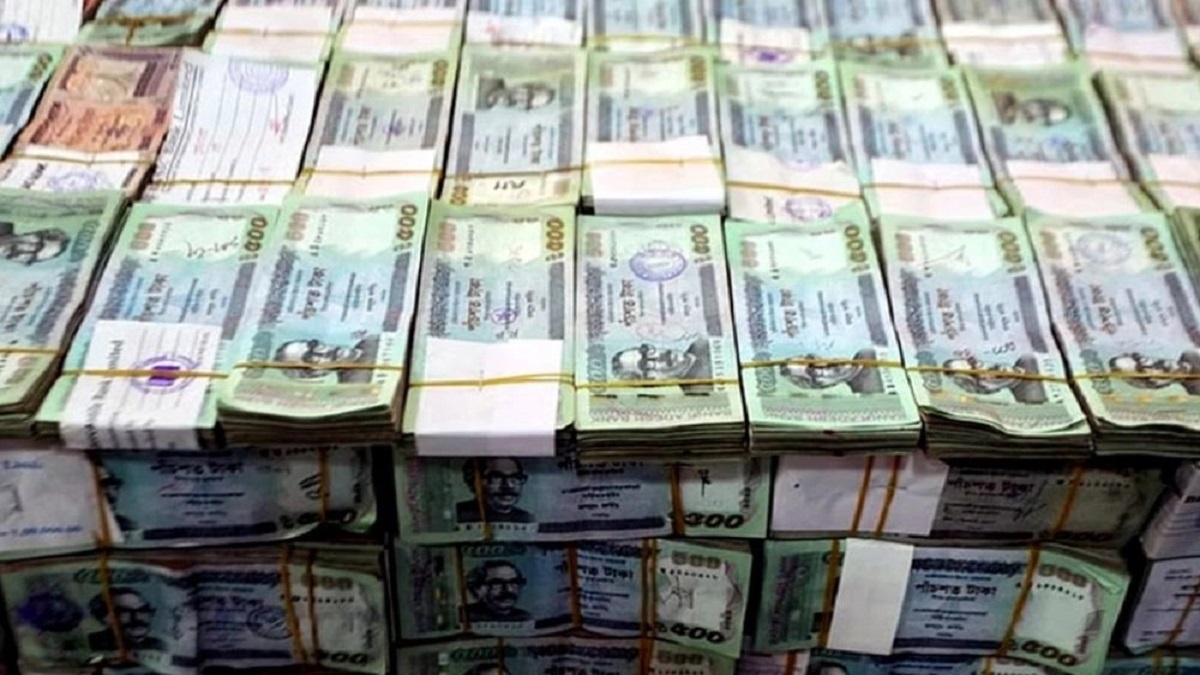Currency outside banks shrinks as depositors return
BY Insider Desk
June 21, 2025

Bangladesh’s banking sector is witnessing a significant reversal in liquidity outflows, with around Tk 190 billion returning to the banking system in April 2025, according to official data.
The development follows months of cash buildup outside banks, offering a temporary reprieve for commercial lenders facing a prolonged liquidity crisis.
Central bank figures show that currency outside banks — commonly referred to as “mattress money” — dropped to Tk 2.77 trillion at the end of April, down from a record Tk 2.96 trillion in March. Analysts attribute the shift to the end of Ramadan and Eid-ul-Fitr, coupled with a lack of alternative investment opportunities and a gradual recovery in public trust in banks.
A senior Bangladesh Bank official, speaking on condition of anonymity, explained that deposit withdrawals typically spike before major festivals, as seen in March when out-of-bank currency rose by Tk 250 billion from the February total of Tk 2.71 trillion. Following the religious holidays, much of this cash has returned to formal banking channels.
The official added that the figure might rise again in May once post-Eid financial activity is fully recorded.
Banking insiders say improved deposit rates, attractive returns on government securities, and concerns over personal security may be prompting savers to reintegrate idle cash into the formal financial system.
“People probably do not feel comfortable holding large sums of money outside banks for long, given the current law-and-order situation,” said Syed Mahbubur Rahman, managing director of Mutual Trust Bank. He noted that higher interest rates offered by banks and stable returns on treasury instruments are proving to be key incentives for depositors.
The shift in money behaviour also reflects deeper issues within the investment landscape. Dr M Masrur Reaz, chairman of the Policy Exchange of Bangladesh, highlighted the limited avenues available for ordinary savers, pointing to the stagnating stock market and declining appeal of savings certificates.
“There are very few investment options that feel safe or profitable to the average person. That’s why money is flowing back into banks,” Reaz said.
The trend emerges at a crucial time for the country’s banking sector, which has faced a crisis of confidence amid allegations of mismanagement and fraud in several financial institutions. Deposit withdrawals have been accelerating since late 2024, exacerbated by high-profile banking scandals.
The interim government, in response, has initiated a range of reforms aimed at stabilising the sector. These include forced mergers of weaker banks, legal actions against defaulting tycoons, and efforts to repatriate funds illicitly transferred abroad. Authorities have also frozen accounts suspected to be linked to financial misconduct.
Tags:
Most Read

Electronic Health Records: Journey towards health 2.0

Making an investment-friendly Bangladesh

Bangladesh facing a strategic test

Bangladesh’s case for metallurgical expansion

How a quiet sector moves nations

Understanding the model for success for economic zones

Automation can transform Bangladesh’s health sector

A raw material heaven missing the export train

A call for a new age of AI and computing
You May Also Like
